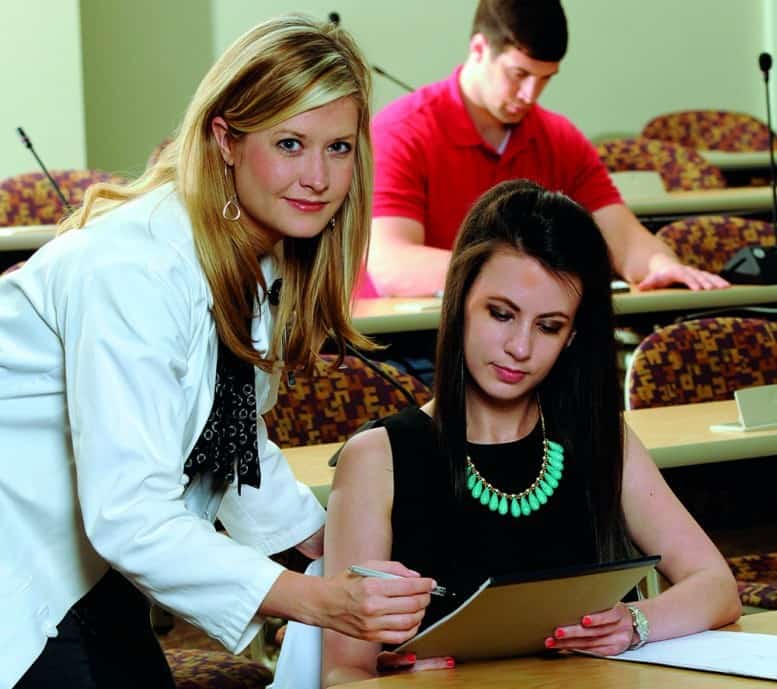UAMS-based Arkansas INBRE Receives $3.9 million for Biomedical Research

Lawrence Cornett, Ph.D., vice chancellor for research, and Helen Benes, Ph.D., associate director of the Arkansas INBRE.
| June 26, 2015 | The University of Arkansas for Medical Sciences (UAMS), administrator of the Arkansas INBRE program promoting biomedical research across the state, Lawrence Cornett, Ph.D., vice chancellor for research, and Helen Benes, Ph.D., associate director of the Arkansas INBRE.has been awarded $3.9 million by the National Institutes of Health (NIH) to continue the program.
The total funding of the grant over a five-year period is $18 million. The grant provides research mentored fellowships to undergraduate students and faculty from predominantly undergraduate institutions, expands statewide resources for bioinformatics, and hosts an annual research conference. The grant ensures the Arkansas program will reach 19 years of continuous NIH funding.
“It’s hard to overstate how important this funding is in building a biomedical research capacity across the state in a highly collaborative manner. The Arkansas INBRE program involves almost a dozen of the state’s largest universities working toward the same goal of encouraging interest in and supporting cutting-edge scientific research that, ultimately, benefits the state as a whole,” said Lawrence Cornett, Ph.D., UAMS vice chancellor for research and principle investigator for the INBRE grant.
Arkansas INBRE is funded under the NIH Intuitional Development Award Program, or IDeA, and stands for IDeA Network of Biomedical Research Excellence. The UAMS-based Arkansas INBRE program manages the initiative for partners that include the University of Arkansas at Pine Bluff, Arkansas State University, Hendrix College, Ouachita Baptist University, John Brown University and others. The University of Arkansas and the University of Arkansas at Little Rock participate as research-intensive lead institutions.
One of the primary initiatives of the Arkansas INBRE program is to support 10-week summer mentored undergraduate research fellowships at the lead institutions.
“The goal is to offer this special opportunity at the undergraduate level to spark student interest in a research-oriented career, and we’ve been highly successful in this regard,” said Cornett.
Since 2002, 161 undergraduates have participated in the summer fellowship program, with more than 50 percent of those now working in research or medical-related careers. Nearly a quarter of undergraduate fellowship participants are in graduate school, and five are doing postdoctoral research. Four are now faculty members.
“Dr. Helen Beneš, the associate director of the INBRE Program, and I are thrilled to have the opportunity over the next five years to build upon our accomplishments, which are aimed at increasing the scientific workforce in Arkansas and increasing the competitiveness of Arkansas institutions for funding to support biomedical research that will ultimately benefit human health,” Cornett said.
The INBRE’s outreach also includes a number of different types of grants to faculty — from shorter summer research to 2.5-year grants — and an annual research conference, all seeking to promote more Arkansas-grown research talent and ultimately to attract more research funding to the state.
